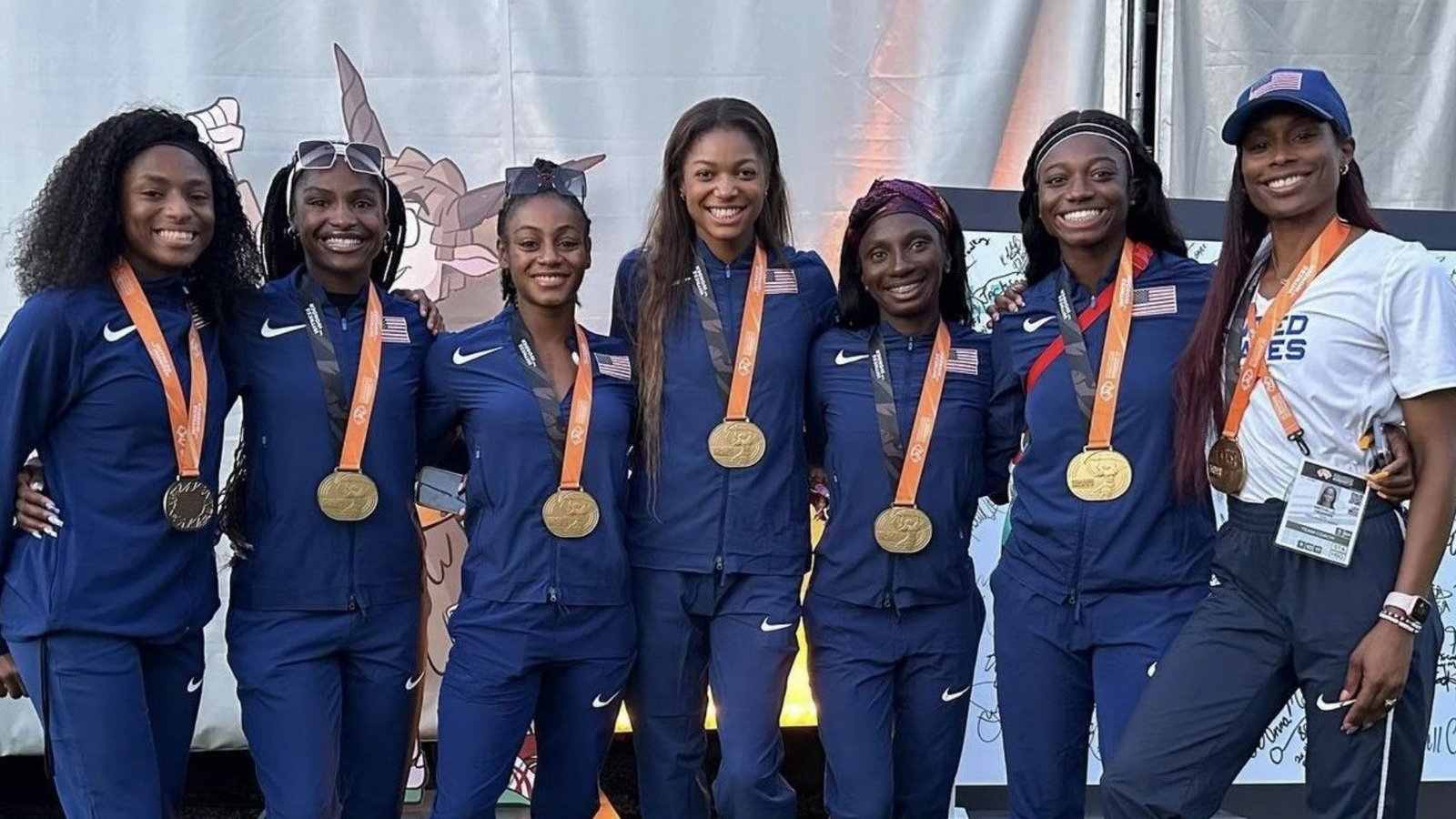Team USA’s women’s relay head coach, has expressed deep frustration over the challenges she faces in her role, despite an incredibly successful run that has seen the team win three consecutive global championship titles since 2022.
Under her leadership, the women’s 4×100 meter relay squad claimed the gold medal at the 2022 World Athletics Championships, defended their title in Budapest in 2023, and clinched Olympic gold in 2024.
Athletes like and have played pivotal roles in this impressive streak, but Freeman’s journey has been far from smooth sailing.
Weeks after both Fred Kerley and Kishane Thompson revealed what cost then gold at the Olympic 100 meter final, Noah Lyles has now bragged over his narrowly-won title, aiming a jibe back at the duo.
In an emotional conversation on Justin Gatlin’s podcast, Freeman spoke candidly about the hurdles she’s faced as the head of Team USA’s women’s relay team, revealing the personal toll the role has taken on her.
“It is a mix of things. For some reason, the barge continuously moves and it feels like no matter what you do, it is not enough,” Freeman shared.
Despite her undeniable success, she has often felt disrespected, enduring some of the most challenging moments of her career. However, she remains resilient, focusing on the results her coaching delivers.
«The work speaks for itself and one day, the appreciation may or may not catch up, but as long as you are doing what you are chosen to do, you are getting the results.»
Kishane Thompson has revealed the three biggest things about his 2024 season that will make him dethrone Noah Lyles moving forward.
Freeman’s frustration stems from a persistent source—individuals who are not directly involved with the athletes but still offer unsolicited advice.
“It is always people who aren’t running, it is always people who have athletes that they are advocating for, it is always the internet coaches who know how to put the 4 by 1 better than you,” she lamented, acknowledging the emotional and mental challenges that come with the territory.
Despite the struggles, Freeman remains focused on understanding her athletes on a deeper level, especially when it comes to their motivations.
“I want to study my athletes all year. I am looking at what they post. I want to see what they are interested in to understand what makes them tick,” Freeman explained. She emphasized the importance of knowing her athletes’ personal drives to inspire them when it matters most.
Her approach to coaching is rooted in mutual respect. “You have to be humble because you are dealing with people who are the best at what they do,” she said. «As long as you operate in that understanding that it is two ways, the value will change. I am learning from them and they are learning from me.»
Freeman’s tenure as head coach has not only been marked by historic wins but also by a commitment to navigating complex relationships and building a winning team dynamic.




